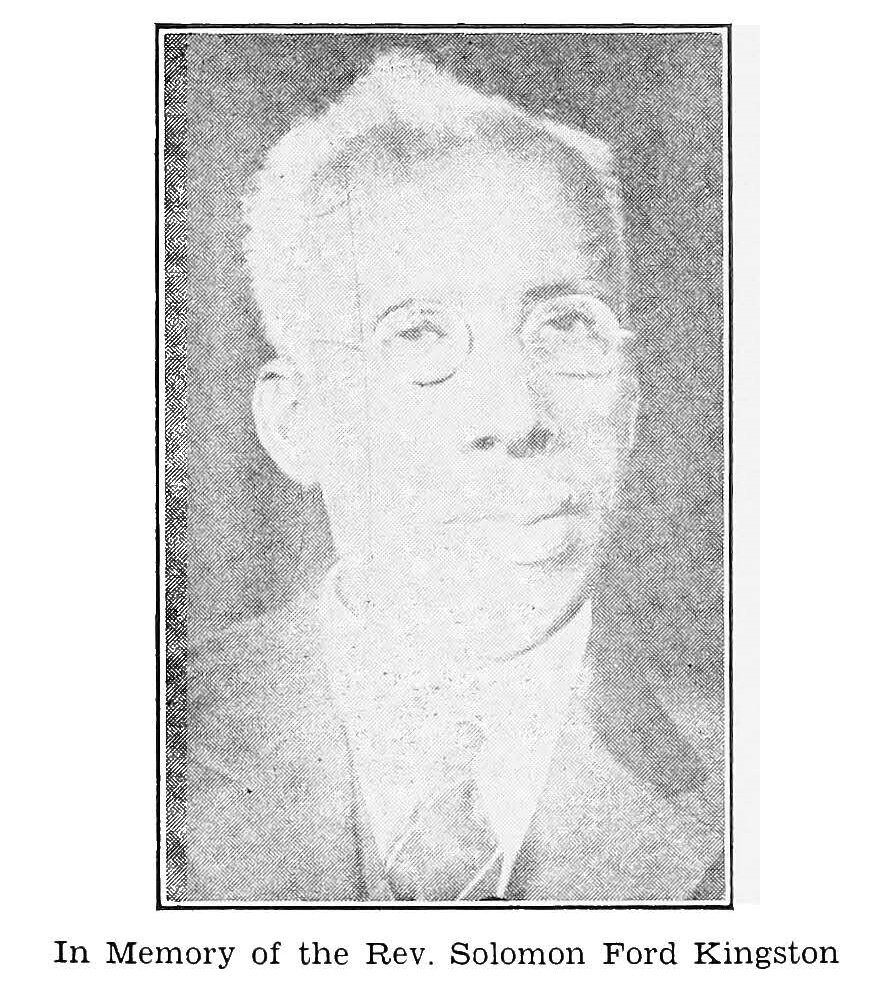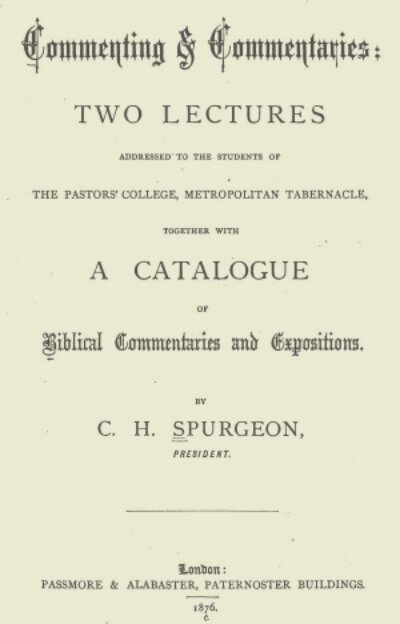(Receive our blog posts in your email by clicking here. If the author links in this post are broken, please visit our Free PDF Library and click on the author’s page directly.)
Between the Huguenot and Puritan there was no stream to bridge over. They had in their common Calvinism and love of freedom a bond of sympathy and union that brought them into harmony as soon as their tongues had learned to speak a common language. -- Lucian J. Fosdick, “The French Blood in America,” p. 210
Once upon a time — we are told in the autobiography of Joseph Caldwell (1773-1835) — a boy sat down with his maternal grandmother — whose name was Rachel Lovel — and learned about a branch of his family tree. The memory stayed with him as an older man, and the account he gives is worth re-telling today. Thus it begins:
The Edict of Nantes was revoked by Louis XIV about the year 1684. The well known consequence was that 500,000 French Protestants left their country to look after settlements among other nations, and in other parts of the world, where they might enjoy the rights of conscience, and the same immunities and prospects for themselves and their families as were common to other subjects or citizens of the governments under which they should live. One of these emigrant families was that of Lovel. They first passed from France into England, and continued there for some time, in the exercise of manufacturing skill. At that period, the colonies of America, now known as the United States, were fast filling up from different parts of the British empire, and Europe. The head of this Lovel family did not continue very long in the vicinage of London, before he concluded to transplant himself with such capital as he possessed, which, it would seem, was not insignificant, to a spot which he selected on Long Island, towards it western extremity, and not far from Hempsted Plains, and near Oyster Bay. Here he purchased an extensive farm. The land was of good (quality, and being faithfully cultivated, yielded annually an abundance for the necessaries and comforts, and all that was desired beyond these for the enjoyments and respectability of people who classed with the substantial mediocrity of the country. With what total abstraction and absorbing interest did my good old grandmother, when I was a boy of twelve, sit and pass in review through the details of her early years, while she was growing up under the fostering guidance of her venerable parent. He was, it would seem, of mellowed affections and patriarchal habits. I shall give a specimen of one of these conversations:
GRANDMOTHER. My father was considered a man of strong mind. His person was large, his expression tempered of gravity, affection and truth, on which the eye rested with confidence. He was often cheerful in aspect and intercourse, but he was always under the chastening influence of piety. He had learned to understand the doctrines of the gospel through the stern constructions of Puritanism, as it has been distinctively called in England. In France, people of this description went under the name of Huguenots.
GRANDSON. Huguenots! That's a strange name. Why were they called Huguenots? What is the meaning of it? I suppose it is some nickname, by the sound of it.
GRANDMOTHER. It probably was. But I do not know its origin or its meaning. They were persecuted so cruelly that they escaped out of France by thousands, to find subsistence and settlements as they might in other countries. My father and his connexions got to the sea coast and went over into England. They were people of property. Some made purchases of houses in London, where they died without heirs. We were told of this some time afterwards, and might have inherited the property, but my father was either unable or too regardless of the matter to attend to it, and time ran on until by the statute of limitation the claim was barred. Some have said that even now, if the claim could be clearly substantiated and conducted through the forms of kw, a large number of houses once belonging to my uncle might possibly be recovered by our family, and if they could, we should all be rich enough.
At this I remember that my little heart bounded, and I became full of inquiries.
GRANDSON. Well, Grandmother, why cannot that be tried? Is it not worth while? You say it was a vast property, how may houses were there said to be?
GRANDMOTHER. I have heard of a considerable number. My uncle was a bachelor, and is said to have owned a whole side of a square, consisting of valuable buildings.
GRANDSON. Has any attempt ever been made to recover the property? If not, would it not be well to make a trial at least, and, if it should fail, we should but be where we are.
GRANDMOTHER. Yes, my child, if there were anybody to do it. But it would imply a great deal of trouble, and time, and expense, and it has been thought best to give it all up.
This was a. theme on which 1 delighted to dwell, with the fond idea that if all that property could be reclaimed, it would be the consummation of our good fortune.
GRANDMOTHER. After my father's emigration to this country with his family, he brought up his children to the habits of industry, piety, and economy. But though he held the reins of domestic government with a steady hand, a spirit of harmony and affection was constantly diffused through all our feelings. We stood in awe of our father, and feared to transgress, but it was accompanied with such a confidence as to strengthen and deepen our love for him, and was attended with a prompt and willing acquiescence in his wishes. Our mother, too, seemed to look up to him with such deference to his opinions and wishes as showed that she felt him to be her guide and protector as well as the partner of her bosom. One singularity that marked his feelings and opinions was that he never suffered meat to be eaten in his family.
GRANDSON. Not eat meat! That is strange. I never heard of any body that never eat meat. What reason could he have for not eating meat?
GRANDMOTHER. He was wont to tell us that the grant to live upon the flesh of animals was certainly in the scriptures. But he considered it to have been made in consequence of the fall of man. Hence, he deduced that to abstain from it was more in conformity with original innocence and perfection, than was the practice of subsisting upon it. He never permitted an animal to be slaughtered for his own use or that of his family. Ho always had large and luxuriant pastures, kept numbers of cattle and such other animals as could be useful to him upon his own principles, provided plentifully for their sustenance and shelter, had an abundance of milk, butter, cheese and fruits, wheat, corn, and vegetables. In short, all around him, both in the house and in the field, was in the best condition.
GRANDSON. But, if he sold one of these animals to be killed by another person, would not that be much the same thing as killing it himself?
GRANDMOTHER. So he felt, and he never would consent to sell one if he knew it was to be slaughtered. Some animals we keep now without ever thinking of killing them for food, such as horses, dogs, cats. He put all upon the same footing.
GRANDSON. But, Grandmother, you eat meat now, and your family were all brought up to it.
GRANDMOTHER. Yes, but I never tasted it till I was married, at 21 years of age. Your Grandfather had no such opinions and habits, and I fell in with his customs and those of his family. To the present day, however, I care very little for meat. My father and all his family were thought as healthy as any people in the country, and seemed to enjoy themselves as much. We were apt to be esteemed peculiarly happy among our neighbors — always harmonious, plain in our manners, affectionate, looking up to our parents with veneration and love, and prompt acquiescence in their wishes. We were taught to be scrupulous in the economy of time, and to feel unhappy unless we were busy about something useful. We had a family library and were educated to an enlargement of the mind, by reading and improving conversation. My father was careful in directing the habits, dispositions and intelligence of his children. Their ingenuity was continually called out for the accomplishment of such work as was assigned to them. If a difficulty occurred, the answer to an application for aid was, “Now try your skill. Is there no way you can contrive for effecting what you want? The greatest advantage in your doing that, is in finding out the best method." This would interest us in our work, and if we succeeded, we were applauded and encouraged, and this gave us fresh heart for our occupation.
GRANDSON. Why, Grandmother, you seem to have been very happy.
GRANDMOTHER. We were usually so. My father was fond of sacred music. He brought over an organ with him, and kept it in his family. He could play upon it himself and sang well — at least we thought so. Most of my brothers and sisters learned from him in succession as they grew up. At the hour of morning and evening prayers, the family all assembled in the room where it was kept, and united their voices with its elevating tones in praising God. It is the very same organ which your uncle John Level has in his house, and on which you have heard his sisters play, who are now living with him.
Such were the accounts which my kind grandmother would detail to me of old Mr. John Lovel, her father, and his peculiar habits, opinions, and mode of life in his family. It can scarcely be supposed that I am professing to describe these things in the expressions used at the time. In the course of my boyhood, they were renewed at different times. They were subjects on which I delighted to hear her converse, and they made indelible impressions upon me. The circumstances and events have been here given in such terms as have occurred.
In this manner, young Joseph Caldwell learned of his Huguenot heritage. It may be of further interest to learn that this same man went on to become
a graduate of the College of New Jersey (Princeton) by the age of 18;
a Presbyterian minister of the gospel;
Professor of Mathematics, and first President of the University of North Carolina at Chapel Hill; and
builder of the first astronomical observatory used for educational purposes in the United States (1830, Chapel Hill, North Carolina).
Read more of his career and works here, and get to know a Presbyterian pioneer in North Carolina education whose Huguenot heritage was an important early chapter in a fascinating life story.





























